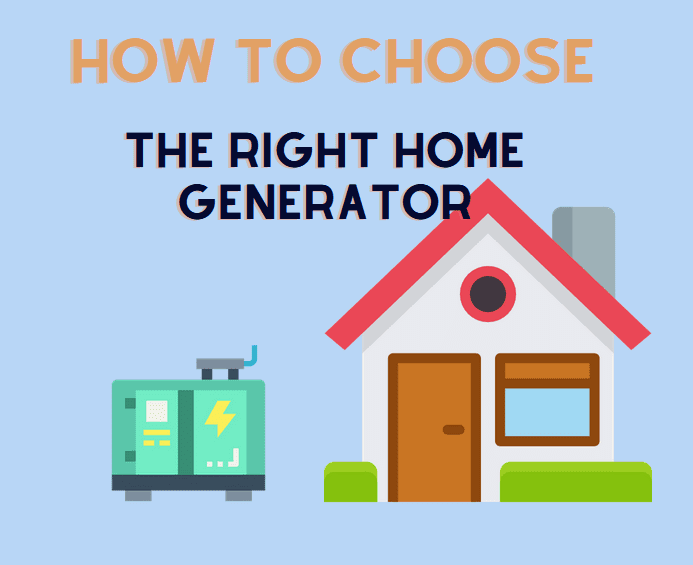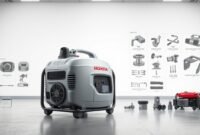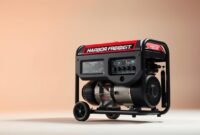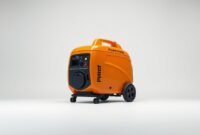When choosing a home generator the first decision that needs to be made is whether to purchase a portable or a fixed permanent home generator. Once that has been decided, then there is the question of the size and power of the generator that will be needed.
One other key decision that needs to be made is whether a more-expensive sine wave generator is necessary or can you make do with the cheaper variety – a square wave generator. Last of all is the decision as to which type of fuel you will use to run the generator.
The Portable Generator Option
If you go with a portable generator, remember, it will have to be pulled out, connected, and manually started every time needed. Portable generators offer several fuel types; gas, diesel, and propane, to name a few.

Although portable home generators can run on natural gas, this means connecting it to a piped gas outlet, which will render the portability rather useless. Connecting it to the home is another manual process that takes some time the home generator is needed.
Fixed Generator Option
This leaves us with the option of fixed or permanent home generators. These neat electricity-generating devices come in all sizes and fuel models. They are more or less automatic; at least, they come with the option of adding automation as and when needed. They can be connected to a gas outlet or large fuel tanks that can ensure they run for hours without any interruption.
It is important to choose a generator that can run for 10 consecutive hours without being shut down. It is equally important to choose a generator that will run on a fuel that is easily replenished locally. A fixed generator is usually large enough to power the entire home air conditioners and other basic appliances.
However, picking one that will take the full load of the home is important. So, proper home generator sizing is essential before choosing a home generator.
Determine Your Electrical Load
To calculate the total power your generator will need to provide, one must get down to calculating the load. Each higher-end incandescent light bulb or fluorescent light consumes about 100 watts. Each fan consumes about 75 watts. The fridge will consume 500 watts, an air-conditioner 2000 watts, and a microwave 1500 watts. This will give you an idea of your electric load.
Check the required load on each appliance and add them up. Then add another 30 percent to your total to compensate for the start-up load when you switch the appliance. Or you may find it easier to ask your generator supplier to inspect your home and calculate the load for you.
Sine or Square Generator Wave?
It is highly improbable that a small home fixed generator will not handle your home load. However, it pays to be cautious. Once you’ve decided the size and fuel type for your generator, do not forget to ensure that your new generator is a sine wave generator instead of a square wave generator.
This is important because a square wave generator will not run your plasma TV, your computer, and your microwave.
The generator should also have an automatic changeover when power fails and an auto-start mechanism so that you do not have to rush out to start and stop it. There is little difference in the price for this, but it is worth it.


